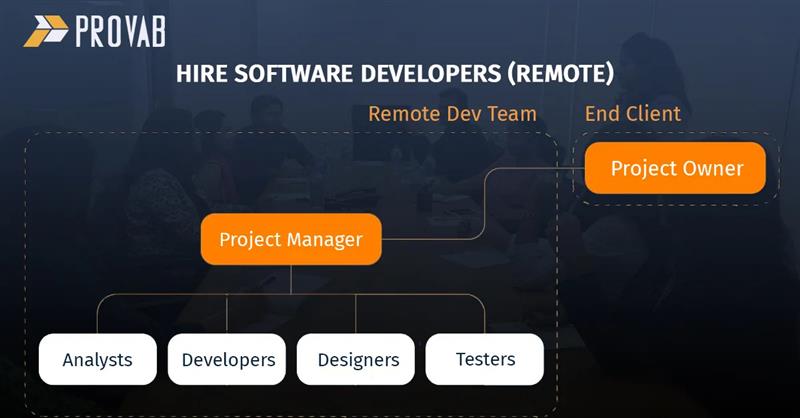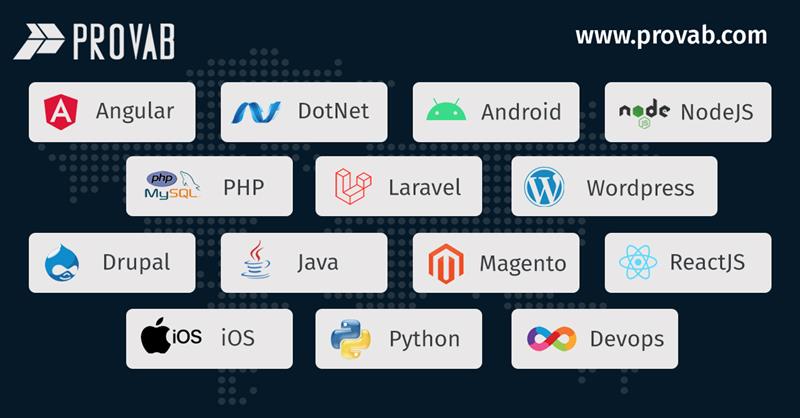How to Hire Software Developers in Romania - A Complete Guide
21 MAY 2025Ritu
Hiring software developers in Romania can be particularly challenging due to a
combination of competition, limited resources, and the unique demands of startup environments.
Startups often face stiff competition from larger, more established companies that can offer higher
salaries, better job security, and more extensive benefits packages. Many developers prefer the
stability of larger organizations, which can make it difficult for startups to attract top talent.
Additionally, startup roles often require software developers to take on multiple responsibilities
and wear many hats, which can be a deterrent for those who prefer more specialized or predictable
roles in bigger companies.
Moreover, startups typically have limited budgets and may not be able to offer the
same financial incentives, training opportunities, or career advancement prospects as larger firms.
This can lead to high turnover rates, as developers may seek more stable or higher-paying
opportunities once they’ve gained experience in the startup environment. The fast-paced,
high-pressure nature of startups can also be a challenge for some developers who prefer a more
structured and slower-paced work environment. These factors make it essential for startups to offer
compelling company culture, growth opportunities, and work-life balance in order to attract and
hire
software developers in Romania
.
Outsourcing has become a common practice in the industry. A 2023
Clutch survey revealed that 83% of small businesses planned to increase or maintain their investment
in outsourced business services in 2023. The IT outsourcing market is expected to continue expanding
in the coming years. The Business Research Company report predicts that it will
reach
$171.5 billion by 2028, growing at a compound annual growth rate (CAGR) of 5.1%.
Why Does Your Startup Need Dedicated
Developers?
Every startup needs dedicated developers
to oversee and manage their projects from
development to implementation. These developers play a crucial role in ensuring the success of the
project by delivering high-quality results.
For any business, cost and product quality are the primary factors to consider. Hiring
dedicated developers can reduce the risk of project failure, and with the right talent, you can
achieve excellent results at a reasonable cost. During the interview process, it's important to
assess their skills and approach to project management to ensure they align with your needs..
A good developer will thoroughly understand your requirements, business goals, time
constraints, and budget. This comprehensive understanding allows them to make informed decisions
that contribute to the success of the project.
Additionally, hiring dedicated software developers
helps businesses avoid the costs
associated with recruitment, training, and infrastructure. With dedicated developers, you simply
need to share your idea and vision, and they will work to bring it to life.
How to Hire Dedicated Developers for a
Startup ? Key Eight steps
Hiring dedicated developers for a startup is crucial to building a strong, reliable
team that can help bring your product or service to life. Here are eight steps to guide you through
the process:
1. Define Your Project Requirements
Before beginning the hiring process, clarify your project’s specific needs. Identify
the technologies, frameworks, and skill sets you require for the project, whether it’s front-end,
back-end, full-stack,
Android /
iOS or specialized expertise. Having a clear scope and understanding of your startup’s goals will
make the hiring process more efficient.
2. Decide on Hiring Models
Determine whether you want to hire full-time in-house developers,
contract developers, or outsource to
a development agency. For startups, outsourcing or hiring remote developers might be a
cost-effective and flexible option, especially in the early stages.
3. Create an Attractive Job Description
Write a compelling job description that not only lists technical requirements but also
highlights your startup's mission, culture, and growth potential. Talented developers often want to
work in an innovative and dynamic environment, so emphasize the benefits of being part of a startup,
such as learning opportunities, creative freedom, and the chance to make a big impact.
4. Leverage Multiple Sourcing Channels
Use a variety of platforms to
find developers
, such as job boards (LinkedIn, Indeed),
specialized tech hiring platforms (Toptal, Stack Overflow), and developer communities (GitHub,
Dribbble, or AngelList). Additionally, consider using a recruitment agency that specializes in tech
talent if you have trouble finding suitable candidates.
5. Evaluate Candidates’ Technical Skills
Conduct a thorough technical interview to assess the candidate’s expertise in the
technologies your project requires. You can use coding tests, technical challenges, or
problem-solving exercises that simulate real-world tasks. It’s important to understand not just
their coding abilities, but also their ability to work in a startup environment and adapt to new
challenges.
6. Assess Cultural Fit and Soft Skills
In addition to technical proficiency, assess how well the developer aligns with your
startup's culture and values. Since startups tend to have a smaller team, it’s crucial to hire
someone who can collaborate effectively, take initiative, and adapt to the dynamic nature of a
startup environment. Evaluate communication skills, problem-solving abilities, and passion for
innovation.
7. Start with a Trial or Probation Period
Before committing to a
full-time hire
, consider a trial or probationary period to
evaluate the developer's work ethic, code quality, and ability to collaborate with the rest of the
team. This will help you assess their performance in a real-world setting and determine if they are
a long-term fit.
8. Offer Competitive Compensation and Benefit
Even though startups may have budget constraints, it’s important to offer competitive
compensation and benefits to attract top-tier developers. Along with salary, consider offering
equity, flexible working hours, remote work options, and professional development opportunities.
Developers are often drawn to startups that offer growth potential, so show them the long-term
vision of your company.
By following these steps, you can successfully
hire dedicated developers
who are a
great fit for your startup and can help bring your vision to life.
Benefits of Hiring Remote Software Developers in
Romania
Hiring remote software developers in Romania provides numerous benefits for businesses,
particularly startups and companies looking to optimize their operations while controlling costs.
One of the most significant advantages is cost-effectiveness. Romania offers a highly skilled
workforce at a fraction of the cost compared to developers in Western countries like the U.S. or
Europe. This allows businesses to access top-tier talent without breaking the bank, making it an
attractive option for startups with limited resources and a need to manage their budgets carefully.
In addition to cost savings, Romania has a vast and diverse talent pool. With millions
of software developers skilled in a wide range of technologies, including web development, mobile
app development, AI, machine learning, and blockchain, businesses can find the right expertise for
their specific needs. Whether you need developers proficient in popular programming languages like
JavaScript, Python, or Ruby, or specialized skills in emerging technologies, Romania offers a rich
pool of candidates who are capable of delivering high-quality work.
Another significant benefit is the ability to extend your working hours. Due to the
time zone difference between Romania and Western countries, businesses can leverage a 24/7 development
cycle. While your in-house team is offline, your remote Indian developers can continue working,
ensuring that projects progress faster and more efficiently. This round-the-clock productivity is
particularly valuable for businesses with tight deadlines or those that need continuous updates and
improvements to their products.

Finally, hiring
remote software developers
in Romania provides flexibility and
scalability. As your project evolves, you can easily scale your team by hiring additional remote
developers based on the project's needs, without the logistical challenges associated with expanding
an in-house team. This flexibility allows startups and businesses to quickly adapt to changing
requirements, all while maintaining cost efficiency and high standards of work. By hiring remote
developers in Romania, businesses can grow their teams as needed without the overhead of long-term
commitments or hiring locally.
Key Challenges in Hiring Developers for a
Startup
Hiring developers for a startup presents several challenges, given the unique nature of startup
environments. Here are some key challenges you may face:
1. Limited Budget
Startups often operate on tight budgets, which makes it difficult to compete with
larger companies that can offer higher salaries and better benefits. Talented developers may be
hesitant to join a startup unless the compensation package includes incentives like equity, flexible
working conditions, or a clear path for growth.
2. Attracting Top Talent
Due to the fast-paced and high-risk nature of startups, attracting highly skilled
developers can be tough. Developers often prefer working at more established companies with greater
job security, stability, and career progression. It can be challenging to convince top talent to
take a chance on your startup, especially if your company is still in its early stages.
3. Finding the Right Skills
Startups often require developers with a broad set of skills, including expertise in
specific technologies, problem-solving abilities, and adaptability to rapidly changing demands.
Finding developers who not only possess these technical skills but also fit into the startup culture
can be a time-consuming and difficult process.
4. Cultural Fit
In a small startup team, every hire has a significant impact on the company culture.
Ensuring that developers are not only technically skilled but also align with the startup's values
and work style is critical. Developers who thrive in a startup environment need to be flexible,
creative, and comfortable with ambiguity, which can make evaluating cultural fit a challenge.
5. Retention and Turnover
The fast-paced nature of startups often leads to higher turnover rates. Developers may
leave for better-paying opportunities or more stable work environments, which can be disruptive to
the startup. Ensuring that developers feel valued and have opportunities for growth within the
company is crucial for long-term retention.
6. Workload and Expectations
Developers at startups are often expected to wear multiple hats, handling everything
from coding and debugging to project management and client communication. While some developers
thrive in this environment, others may struggle with the broad scope of responsibilities, leading to
burnout or dissatisfaction. Clearly defining roles and setting expectations can help mitigate this
challenge.
7. Limited Resources for Recruitment
Startups typically have fewer resources dedicated to recruiting than larger
organizations, which can hinder their ability to find the right candidates. Without the proper
recruitment strategy or budget for advertising and headhunting, it may be difficult to source
qualified developers in a timely manner.
8. Scaling and Growth
As a startup grows, the need for developers often evolves. In the beginning, you may
only need a few developers with diverse skill sets, but as the company scales, you may require
specialists or more team members. Scaling your development team quickly while maintaining high
quality can be a significant challenge as your startup matures.
How PROVAB helps startups with their
software development needs?
Provab has a strong track record of helping startups onboard
skilled developers
for their projects,
providing consistent support throughout the development process. We have a proven approach that
guides startup owners from identifying their needs to successfully executing their ideas, ensuring a
smooth and effective collaboration.
Our process begins by gathering the client’s requirements and assessing the complexity of the
project. Our team then translates these requirements into actionable tasks, breaking them down into
manageable components and assigning them to our skilled developers. Once the plan is in place, we
hold thorough discussions with the client to ensure alignment on goals and expectations. When both
parties are satisfied, we kick off the project with an agreed schedule and a formal contract.
Clear communication is at the core of our process, and we actively share ideas and feedback with our
clients throughout the project. A great example of this was our work with Aspiration, a financial
firm dedicated to ethical practices. To help them build the product they envisioned, we maintained
daily communication, fostering a collaborative environment that ensured everyone was on the same
page. Our client praised the exceptional quality of our work, and this collaboration played a
significant role in our mutual success and the results we delivered.
Demand of software developers in different
business verticals?
The demand for software developers varies across different business verticals, driven
by technological advancements, industry-specific needs, and the growing reliance on digital
solutions. Here’s how different sectors are experiencing demand for software developers:
Healthcare
The healthcare industry has seen a significant rise in demand for software developers,
especially with the increasing need for digital health solutions such as telemedicine, electronic
health records (EHR), patient management systems, and mobile health applications. Developers skilled
in data security, AI, and cloud technologies are highly sought after to build secure, scalable
solutions that can enhance patient care and optimize healthcare operations.
Finance and FinTech
The financial sector, particularly FinTech, is rapidly adopting technology to offer
innovative products like mobile banking, payment solutions, and digital wallets. Software developers
are in high demand for building secure, user-friendly applications and platforms that handle
sensitive financial transactions, as well as for incorporating emerging technologies like
blockchain, machine learning, and AI to improve fraud detection, automate processes, and enhance
user experiences.
E-Commerce
As online shopping continues to dominate, e-commerce companies are heavily investing
in software developers to enhance their platforms. Developers are required for building and
maintaining user-friendly websites, mobile apps, payment gateways, and inventory management systems.
Additionally, the rise of AI, chatbots, and personalized customer experiences has increased the need
for developers skilled in machine learning, data analytics, and artificial intelligence.
Education (EdTech)
The demand for software developers in the education sector has surged with the growth
of online learning platforms and educational tools. Developers are needed to create e-learning
solutions, virtual classrooms, learning management systems (LMS), and tools for personalized
education. The integration of AI, gamification, and AR/VR for interactive learning experiences has
further driven the need for skilled developers in EdTech.
Retail and Logistics
As retailers embrace digital transformation and supply chain optimization, the demand
for software developers in retail and logistics has grown. Developers are required to create
applications for inventory management, customer relationship management (CRM), order tracking, and
logistics automation. The growth of smart warehouses and the Internet of Things (IoT) in logistics
has also spiked demand for developers proficient in IoT, cloud computing, and big data analytics.
Entertainment and Media
The entertainment and media industries, driven by streaming platforms, gaming, and
digital content distribution, require developers to build and maintain high-performance
applications. Developers with expertise in video streaming, gaming engines, content delivery
networks (CDNs), and augmented/virtual reality are in demand to create immersive experiences for
users and develop backend systems for managing large-scale media delivery.
Automotive and Transportation
The automotive industry, especially with the rise of electric vehicles (EVs) and
autonomous driving technology, is increasingly in need of software developers. These developers work
on systems for in-car entertainment, navigation, driver assistance systems, and electric vehicle
infrastructure. The demand for developers skilled in machine learning, IoT, and big data is
particularly high in this vertical.
Cybersecurity
As data breaches and cyberattacks become more prevalent, the demand for software
developers in cybersecurity has skyrocketed. Organizations across all sectors need skilled
developers to build secure applications, implement encryption, create threat detection systems, and
ensure compliance with privacy regulations. Developers with expertise in ethical hacking, security
protocols, and secure coding practices are in high demand.
Artificial Intelligence and Machine Learning
AI and ML developers are needed across various industries, from healthcare to finance,
to develop systems that can predict trends, automate tasks, and make data-driven decisions. As AI
continues to be integrated into various business processes, the demand for developers with expertise
in AI frameworks, deep learning, natural language processing, and neural networks is growing
rapidly.
Real Estate
The real estate industry is also leveraging technology to streamline operations,
enhance customer experience, and improve property management systems. Software developers are
required to create platforms for property listings, virtual tours, real-time communication with
clients, and management of property data. The adoption of AI and machine learning for pricing
models, predictive analysis, and client targeting has further increased demand in this sector.
Conclusion
Hiring a dedicated software development team through partners provides several
advantages, including enhanced focus, greater flexibility, and improved cost-effectiveness.
At
PROVAB, we prioritize aligning the right team
with each unique project, ensuring optimal results. The success we’ve achieved—alongside our
clients—is a clear reflection of the value dedicated teams bring to the table.





























